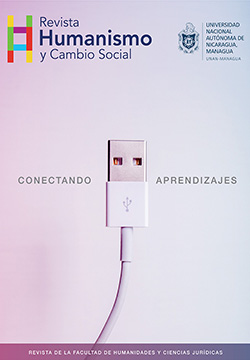Analectic of lament. The sensitivity as a praxis germ
Keywords:
Analectic, liberation philosophy, sensitivity, esthetics, lament.Abstract
The lament is a phenomenon which is present in our daily life. However, its extensive presence also implies its trivialization, because suddenly can be inaudible and who are lamenting is invisible for others. The lament only affects when it is own or this is suffered by a person loved. While this phenomenon is above all an esthetic object, because expresses a discomfort sensation, pain or displeasure, it means this is an anesthetized society or it is insensitive to the pain of others. This allow to Latin American nations authorities do easy tasks, and they can carry out their violent administrations through the necropolitical resources, it is administered to bodies and their deaths, to achieve a more comprehensive control. In this manner, it is necessary a way to communicate the pain of other and re-sensitize us as a social and political transformation principle, for overcoming the critical conditions of misery in which our peoples live. For this purpose, it is proposed the Enrique Dussell concept: analectic, which takes above all an ethical burden in which a dialogue can be generated that privileges listening, which means it is no longer a negative dialectic, but rather that it is open and integrated and always pretending the goodness. The subject that has an analectic attitude has the capacity to listen to other from his oppression and generates in itself the responsibility to preserve his life and his safety, as a collective principle of collaboration. In this context, to develop a favorable policy to our conditions as Latin America peoples, it is necessary to transform and sharpen our sensitive powers, that is, esthetics. If the policy always refers to the other as a component of my own reality, it is necessary to learn to listen their needs, and a principle of this learning in the current conditions is the lament.
Downloads
References
Benjamin, W. (2016). Estética y política. Buenos Aires: Las cuarenta.
Dussel, E. (2011). Filosofía de la liberación. México: FCE.
Dussel, E. (2016). 14 tesis de ética. Hacia la esencia del pensamiento crítico. México: Trotta.
Freire, P. (2016). Pedagogía del oprimido. México: Siglo XXI.
Galeano, E. (2016). Memoria del fuego. 1. Los nacimientos. México: Gandhi.
Mandoki, K. (2013). El indispensable exceso de a estética. México: Siglo XXI.




